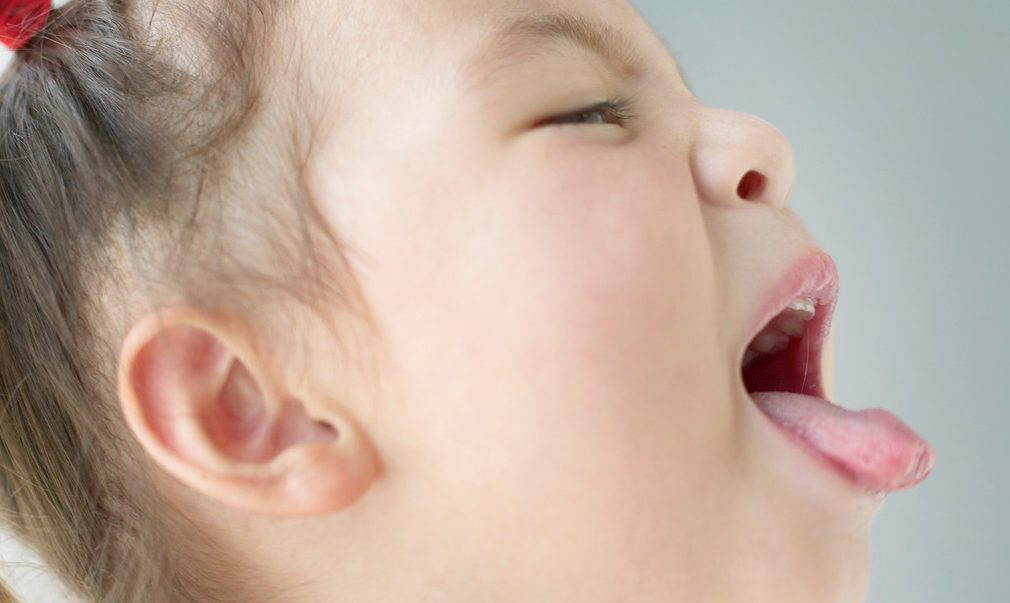Your Child’s Cough Could Be the Best Remedy for an Illness

More often than not, coughing protects children’s bodies from what ails them in the respiratory tract. Here's what you should know if your child is coughing.
It can be agonizing when your child coughs and coughs, and your imagination starts to take hold.
But the fact is, most kids have brief, repeated periods of coughing due to viral upper respiratory tract infections, particularly the common cold. Coughing is their body’s way of clearing the way (of irritants like mucus) to recovery.
“Cough is one of the most frustrating symptoms to deal with as a parent, and equally frustrating for the physician,” says Farrell Pediatrics, a medical practice in Reston, VA. “Most of the time there is very little that can be done about a cough.”
YOU MIGHT ALSO LIKE: Our Cold and Flu Care section
Healthy preschool children in day care can have up to eight viral respiratory infections with a cough every year, each easily lasting about 10 days, says the American Academy of Allergy, Asthma and Immunology.
If it helps you relax, remember that there are receptors or signals in the body that are activated when you need to cough. A viral infection can cause these receptors to be very sensitive. After a viral infection, these receptors can remain and continue to be sensitive. This causes a chronic cough, writes Beth Gamulka, MD, and Janine A. Flanagan of the Hospital for Sick Children in Toronto, Canada.
Types of coughing
A cough can sound wet, dry, or barky. A cough that lasts fewer than 2 weeks is called an acute cough. A cough that lasts longer than 4 weeks is called a chronic cough. The cause of the cough will determine how long it lasts. If your child has only a cough or a cough and a runny nose, he usually gets better within 1 to 2 weeks.
Think of a cough as a good thing, which is why pediatricians don’t recommend suppressing it with over-the-counter products available at your local pharmacy. You might get a better night’s sleep, but it’s not worth doing it at the expense of your child’s ability to get over a virus. Try ear plugs. They’re comfortable, cheap, and effective. Don’t worry; you can still monitor your child by sound during the wee hours.
While most coughing in children is due to a simple head cold, pediatricians do caution you to pay attention because less often it can be a symptom of bronchitis, whooping cough, or pneumonia, according to a study in the journal Cough.
“A significant minority of children cough for longer than 3 weeks after a simple viral head cold,” the study authors write. “If the child is otherwise well and the cough is dry and there are no specific alerts for a serious disease, and the cough is resolving, a period of observation is all that is recommended.”
You can still manage your child’s cough. Simple treatments include increasing fluids, elevating the head of your child’s bed, using a humidifier in the child’s room at night, and eliminating irritants — such as tobacco smoke and chemical fumes — from your home.
When to worry about a cough
“Investigations are required earlier if there is a suspicion of a retained inhaled foreign body, the cough is progressively worsening, or there are already signs of chronic disease present. If a child develops a prolonged wet cough after a head cold has resolved, antibiotics should be considered as the child could have persistent bacterial bronchitis or rhinosinusitis.”
It’s worth concern when a child:
- Has chest pain but is not coughing
- Is wheezing
- Has labored breathing
- Has a croupy cough (a distinct barking sound)
- Coughing fits that are so intense they leave a child gasping for breath, a sign of whooping cough
Croup is a viral infection that affects mostly younger children. Symptoms include swelled vocal cords, causing the barking cough. Symptoms are worst for two or three days.
The first treatment approach is to calm your child, then steam-up the bathroom and let your child breathe the moist air. If the weather allows it, you can also take him outside for some misty, cool air. If it doesn’t clear up after three or four days, a trip to the doctor is recommended.
With pneumonia, the cough is forceful, breathing is rapid or labored, and there is usually a mild-to-high fever over 102 degrees, but not always. Don’t wait, especially if there is a fever. Call your doctor.
You should call your doctor when your infant is wheezing, which could mean asthma or bronchiolitis. This is better-safe-than-sorry advice because doctors may use medicine to open the airways and ease breathing, which alleviates asthma attacks and allows treatment at home for bronchiolitis once breathing is under control.
Whooping cough was virtually eradicated once the DTP vaccine became available in the 1960s, but it’s making a modest comeback. The best treatment is prevention by making sure your infant has been immunized. If there is any question over whether your child has whooping cough, call 911. It is a serious, contagious, and potentially fatal disease.
Updated:
May 03, 2022
Reviewed By:
Janet O’Dell, RN